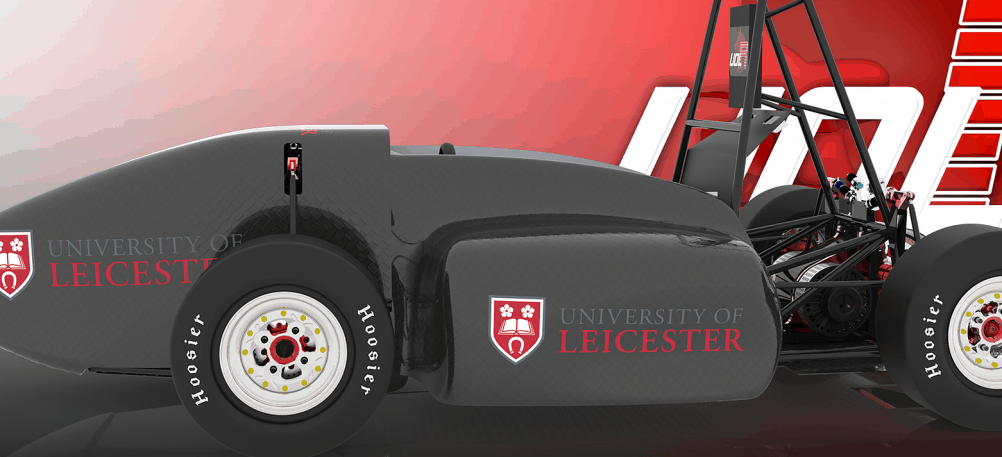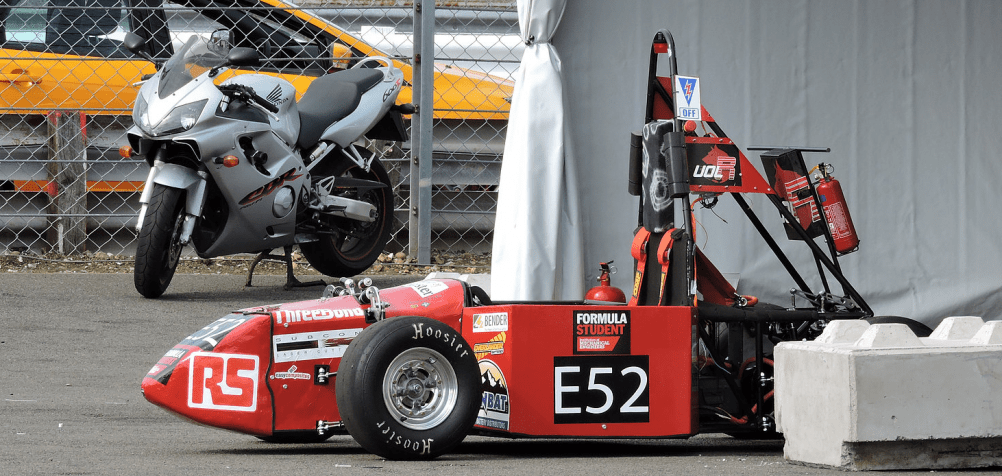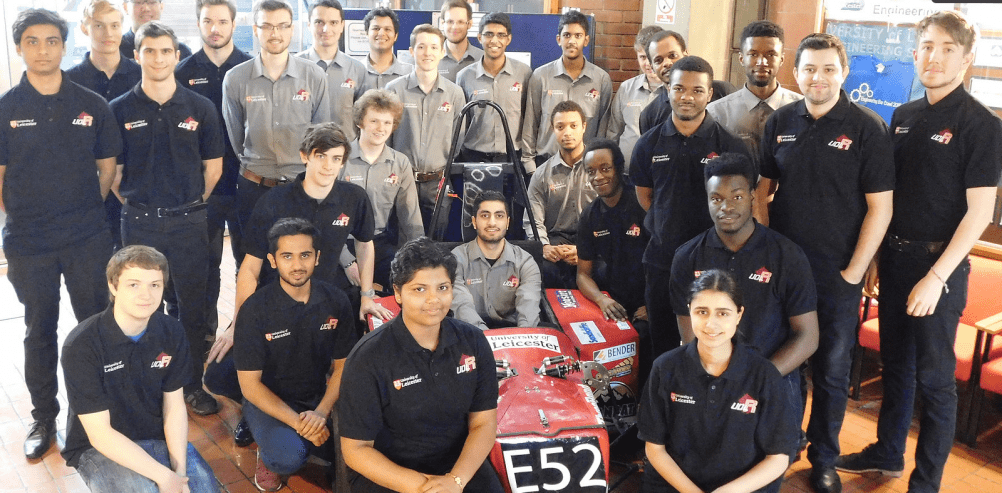As The Student Engineer has previously reported, electric vehicles (EVs) are becoming increasingly popular in Formula Student, the prestigious competition where many young engineers cut their teeth.

For Leicester University’s team, 2016 will be the fourth occasion that it enters an EV. However, due to the technical challenges associated with electrics, no EV has ever passed scrutineering at Formula Student UK (FSUK). Leicester are planning on being the team to change that in just a couple of week’s time. Team Principal Goergeous Gobrial told the Student Engineer about how he got involved with the team, and why scrutineering for EVs is has become their Everest.
Hi Goergeous. This is Leicester’s 4th attempt at an electric car. Have you been involved in the previous efforts?
Indeed, I first joined when I was a second year and during the team’s second attempt in 2014. At the time the project was mostly driven by the collaboration of 3rd and 4th year design projects. My contribution was in the manufacture of the chassis, but thanks to the older students who took me under their wing, I learnt a lot regarding the design and manufacture of a race car.
Unfortunately, the car never did materialise, I believe due to conflicts of interest among the design students at the time. The objectives and aims of their academic projects did not align correctly with those required for a Formula Student Team. Moving on to the following year, I was promoted to be Team Principal in partnership with another student, Omar Eid. However, this was also my year in industry year where I was working full time for Rolls Royce in Derby, so naturally we divided up the responsibilities so that Omar was the technical leader and I was the team manager. This year was pivotal to the success we are enjoying now, primarily due to the knowledge and experience we have retained, enabling us to truly improve the calibre of the team.
There are 32 EVs in the Class 1 part of the competition this year - the highest number ever. Why do you think EVs are becoming so popular?
It’s hard to say for all teams, but there is definitely a performance advantage when correctly implemented, as seen by some of the best teams in the competition. They are breaking world records in acceleration, and to think this is by students is mind boggling. But this advantage does come at the cost of increased difficulty in design - I know there have been teams which have given up on being EV and returned to being combustion.
What are the technical advantages of an EV over a combustion vehicle, and what are the challenges unique to going electric?
The most notable advantage attributed to EV cars is the instantaneous torque the electric motors provide, a desired characteristic in the tight corners and acceleration of the dynamic events. With regards to handling, EV teams can adopt electronic differentials, torque vectoring and outboard motors to further increase key performance characteristics.
Of course there is always a trade-off, most notably in the increased intensity of the rules. It requires teams to implement a large range of safety systems, and requires us to understand the vehicle's failure mechanisms to implement secondary/health monitoring systems. Another challenge to consider is the multi-disciplinary systems integration that’s required in the design and build of an EV car, more specifically understanding the requirements of each system and the interfaces in which they communicate.

What does the scrutineering process involve, and where have EVs failed in the past?
Scrutineering entails several key stages but most notably is the mechanical and EV procedures where the vehicle is analysed to ensure all the rules are met. It’s hard to say generally where teams tend to fail, but an aspect of the EV car that is especially difficult is the accumulator containers (battery pods). The rules are extensive regarding the design of the container: they specify the mounting, fasteners and connections required. Another challenge is the implementation of the vehicle's electronics, safety systems and health monitoring systems. In doing so you create a long list of circuits that need to be created and implemented correctly.
As you’re not allowed race without passing scrutineering, presumably this means an EV has yet to ‘officially’ race in Formula Student in the UK?
To our knowledge we believe so. This was certainly the [case] last FSUK, but with more UK electric teams this summer who knows how long the title will go unclaimed!

Apart from passing the test, what are the team’s other goals for this year?
This year we’ve been striving to achieve a professional standard of work within the team, requiring team members to consider deadlines, cost and manufacturability in their design process as they would do in industry. Building off the previous year, we have also aimed to retain as much knowledge as possible throughout the design and manufacturing process to aid the team further next year.
Finally, Dr Weston (the team’s safety officer) told us he has promised the team a case of beer if the car passes scrutineering. That’s not a lot of beer for 30 team members. Will he have to reassess this quantity if you guys are successful in your attempt?
I feel that just passing scrutineering will fill the team with a massive feeling of success and pride after a hard year of work. In a sense we’ll be drunk on happiness, but the beer will help too!
Thanks Goergeous, and best of luck in the competition!




Red Bull makes hydrogen fuel cell play with AVL
Formula 1 is an anachronistic anomaly where its only cutting edge is in engine development. The rules prohibit any real innovation and there would be...